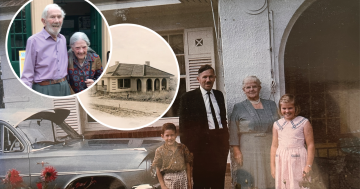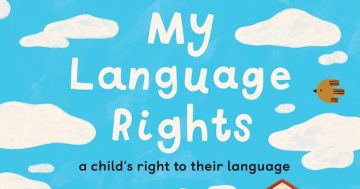Rebecca English* discusses how home schooling can break gender stereotypes – not reinforce them.
 You read that title and choked, right? That’s because, when you think about home schoolers, you probably think of a conservative family trying to shelter their kids from the pernicious influence of the wider community.
You read that title and choked, right? That’s because, when you think about home schoolers, you probably think of a conservative family trying to shelter their kids from the pernicious influence of the wider community.
You likely imagine a wife who stays home while her husband earns the money.
So, when I say it’s a feminist decision to home school your kids, your immediate response is, “umm, no”.
In the interests of full disclosure: I consider myself a feminist, and I home school.
I’m also a researcher who’s interested in why highly educated woman home school their children.
But, this isn’t all about me.
It’s about the growing number of feminists who find themselves home schooling.
Let’s start with what home schooling is.
Home schooling is one of the fastest growing educational choices in Australia.
The numbers are growing rapidly; in 2020, almost 26,000 young people or approximately six in every 1,000 school aged children in Australia home schooled.
Most home schoolers have, at some stage, been to school.
Families change to home school because children have bad experiences ranging from “a bully beat up my kid and nobody helped” to “my kid is Autistic but the school couldn’t help them”.
After trying to make it right with the school/s, they end up home schooling.
These points are troubling.
Most people who wind up home schooling end up there quite by accident.
It could happen to you.
Interestingly, but probably not unexpectedly, most home schoolers are women, probably because it’s considered women’s work to educate children.
Women do most of the education stuff, such as teaching reading, managing homework and organising children’s social calendars.
It’s fair to say, as Waring did, most of this work is unpaid and under undervalued, but should be counted in GDP.
But, surely home schooling is even worse? I disagree.
One of the main reasons for my disagreement is gender; you can break gender stereotypes if you home school.
LGBTIQ+ kids home school because gender and sexuality are so heavily policed in schools.
In everything from the refrain, “that’s gay Miss” to school uniforms, subject selection and teachers’ gender balance, schools teach young people only cis-gendered and straight is acceptable and privileged and being male is the crème-de-la-crème.
I met a home schooling mum a few years ago whose son identified as male but wore the girls’ uniform.
She told me he’d been bullied, culminating in his being pushed into the girls’ toilets and urinated on.
She brought him home to express his identity freely and without prejudice.
The biggest issue that is raised in feminist discussions of home school is paid work.
It’s assumed home school mums quit work and depend on their husbands and that affects things like retirement savings but, as research suggests, women who have kids and keep working also suffer.
A big myth is that all women quit paid work to home school, that’s not true, there are single mums who home school, work, and finish graduate degrees.
If you have a community, like say other families who home school ¯\_(ツ)_/¯, it facilitates women home schooling and working.
I think of the mum, a trained ESL teacher, whose son was still not reading in year 8, in spite of going to one the best private schools in her town, so she did a tutoring course and started her own business to help her son.
But, not everyone wants to work outside the home, and isn’t that okay too
My final point builds on the idea that there are horses for courses, it’s the mantra ‘girls can do anything’.
And sometimes that anything is to make the best of your situation.
If your child is in the position where you have no choice but to home school to keep them safe, then you are exercising agency and courage in the face of difficult circumstances.
I think of the mother whose five-year-old’s severe anaphylaxis meant that even touching the classroom railing caused her to stop breathing.
She told me the school’s response was to suggest the child wear five or six gloves and pull them off progressively throughout the day.
She took ownership of her situation and decided, if they won’t protect my child, I will.
Maybe the problem then isn’t home schoolers; the problem is school not keeping children safe?
That sounds like a variation on the meme, “you don’t hate Mondays, you hate capitalism”.
Because, most of the problems with home school are problems with neo-liberal capitalism, with the way the system is organised.
Doesn’t that suggest that, if schools were safe and effective, these families wouldn’t be home school statistics? But, if families are happy home schooling, why is it a problem?
So, rather than going home schoolers for being anti-feminist and complicit in their own patriarchal oppression, let’s learn a bit about why families do it.
And, while we’re at it, let’s unpick the patriarchy in the schooling system, the power dynamic that turns learning into competition, something these home schoolers are fighting.
Let’s reflect on ways we could do education better, and provide options for women who choose to home school, so that the agency and power in a decision that radically alters the family – economically, socially and culturally – can be appreciated and applauded.
*Dr. Rebecca English is a researcher, teacher and mother whose work is concerned with parenting and education.
This article first appeared at broadagenda.com.au.











